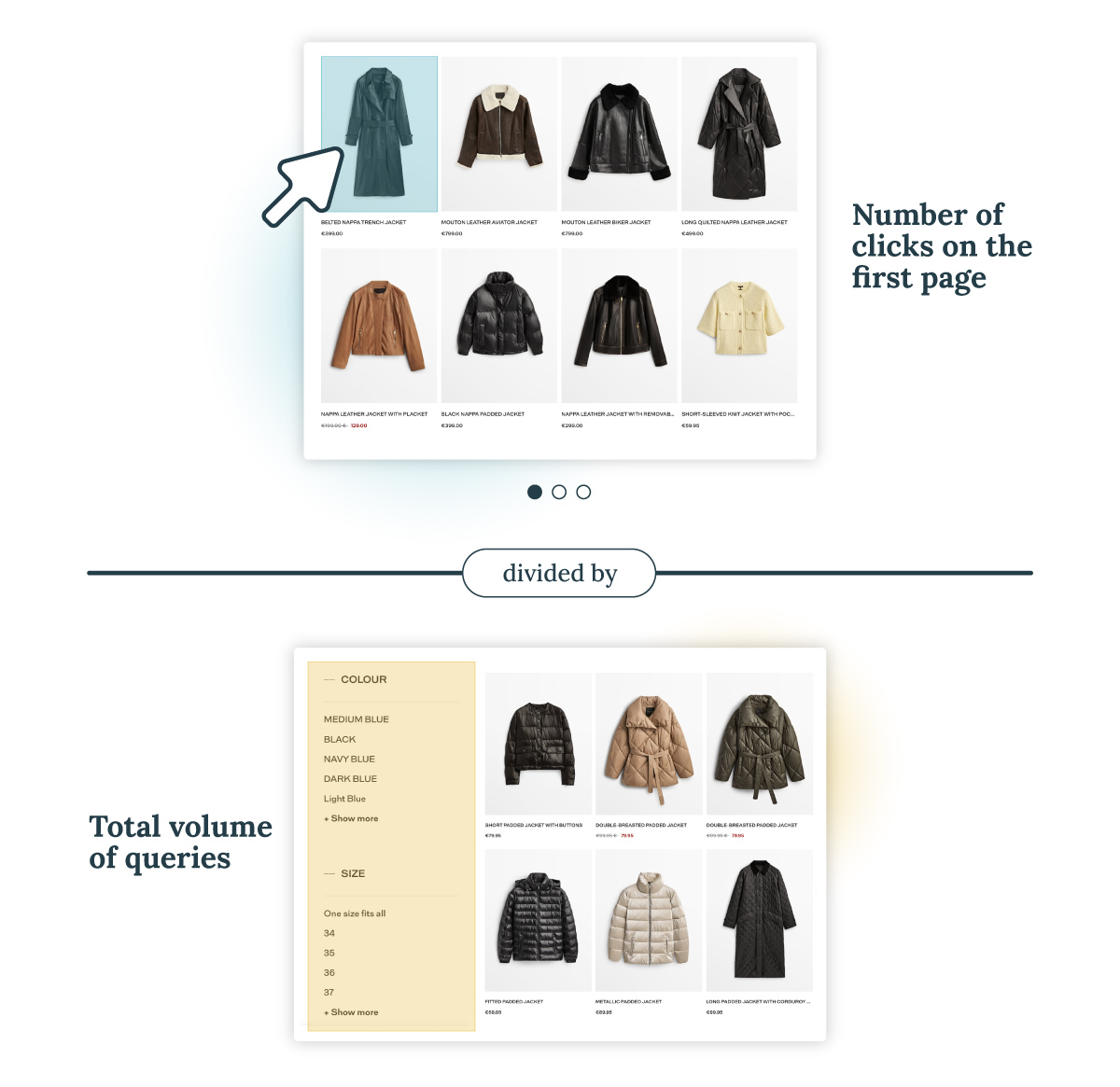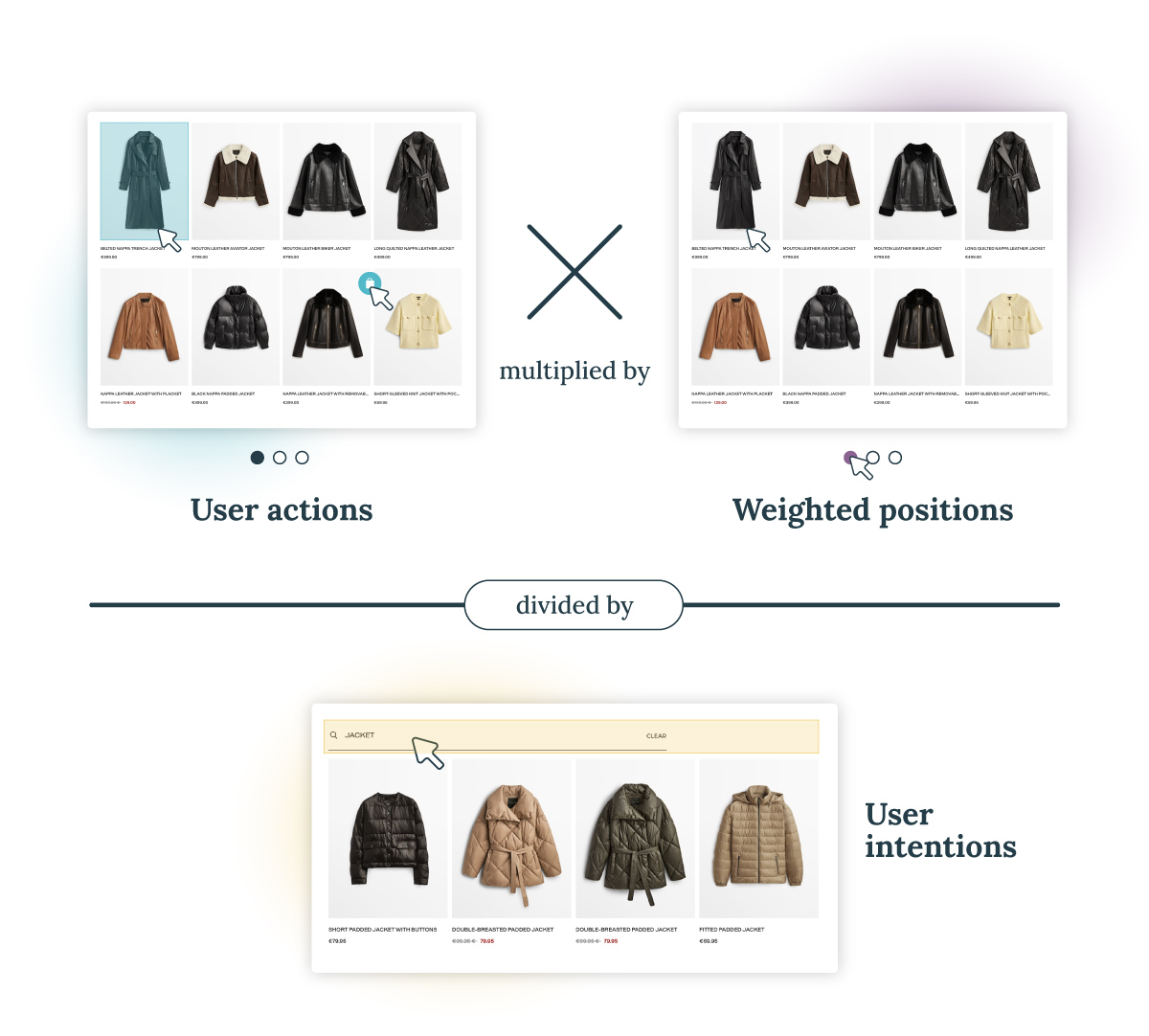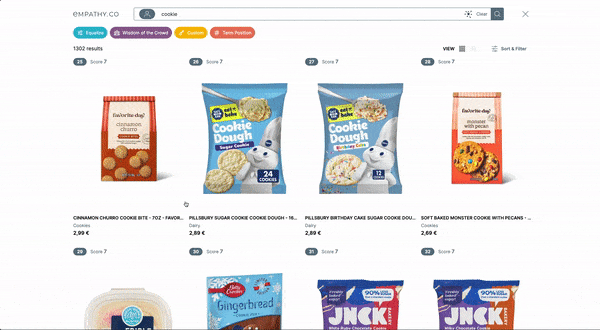Shifting to Session-Based Findability
Shifting to Session-Based Findability
Understanding search success while protecting privacy
FIRST THINGS FIRST: WHAT IS FINDABILITY?
Findability is a measure of search success, created by Empathy.co, to understand and monitor the effort needed from customers to find what they are looking for. The Findability metric offers a way to determine if the search engine of an ecommerce store is placing the most relevant results on the first page so that shoppers can find them easily. It was originally calculated as the percentage of searches that generate clicks on the first page, and measured within the Empathy Platform Playboard.

While the Findability metric has proved effective in helping merchandisers and analysts evaluate search performance, we identified aspects for improvement while collaborating with our customers. To explain shopper intent more clearly and measure search success more precisely, we decided to tailor the metric by addressing two particular factors: non-normalised percentages and lack of information from clicks.
Imagine that a shopper searches for jeans, then navigates to the second page of the search results and also applies a filter. The legacy Findability metric would count all three of those actions as individual queries for jeans, when really, the shopper is simply looking for jeans and hasn’t yet found what they want. So how can we better empathise with shoppers and understand their intent? The answer is Session-Based Findability.

FINDING A NEW FORMULA
Since shoppers’ intentions are not always indicated in a single action, we began to explore how to express them differently, to give brands deeper insight into how customers interact with their store. In order to normalise the percentages obtained from the metric, we decided to shift our approach to Session-Based Findability by utilising the number of unique queries per session, and the number of unique interactions per unique query.
Thanks to our shift to Session-Based Findability, the metric is now normalised and will never surpass 100%, making it easier for merchants and analysts to understand how accurately shoppers’ intentions are being met. The positions on the SERP are weighted, higher at the top and lower at the bottom, so that interactions receive weight proportionally. Now, clicks and add-to-carts from all pages are taken into account, and the weight they are given is based on their position.

ENSURING FINDABILITY & PROTECTING PRIVACY
By taking into consideration shopper intent, shopper actions like clicks and add-to-carts, as well as the position of the results interacted with, Session-Based Findability gives brands more information about all of the possible interactions that can be performed on the SERP. This new iteration of measuring search success continues to respect shoppers’ privacy, as the information collected comes from sessions and not individual consumers. Applying Session-Based Findability ensures merchandisers and analysts can truly understand their shoppers and enhance their experience, all without PII.










